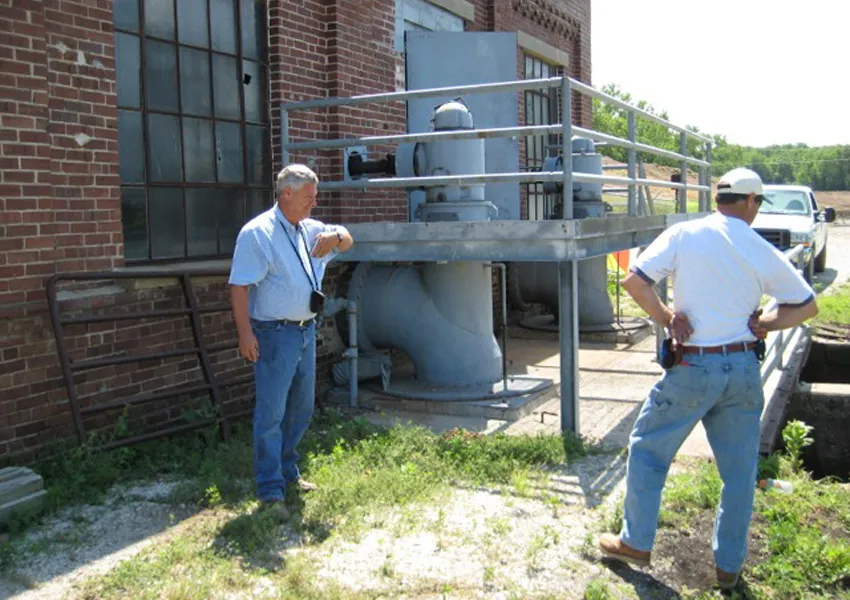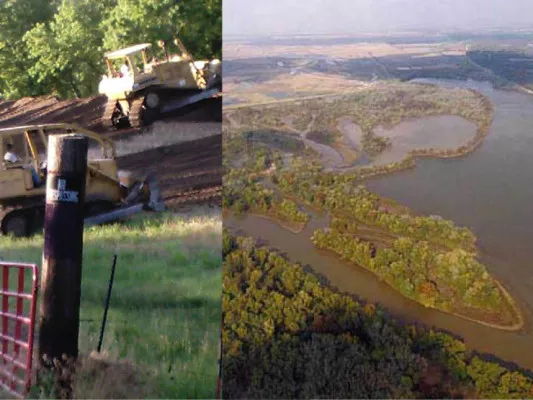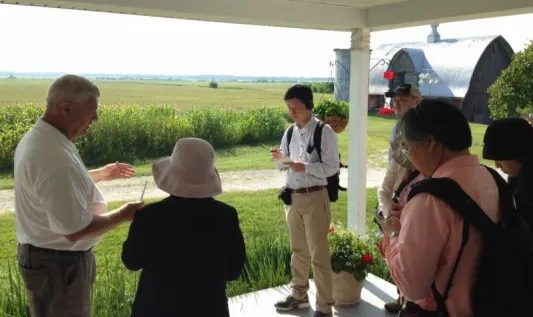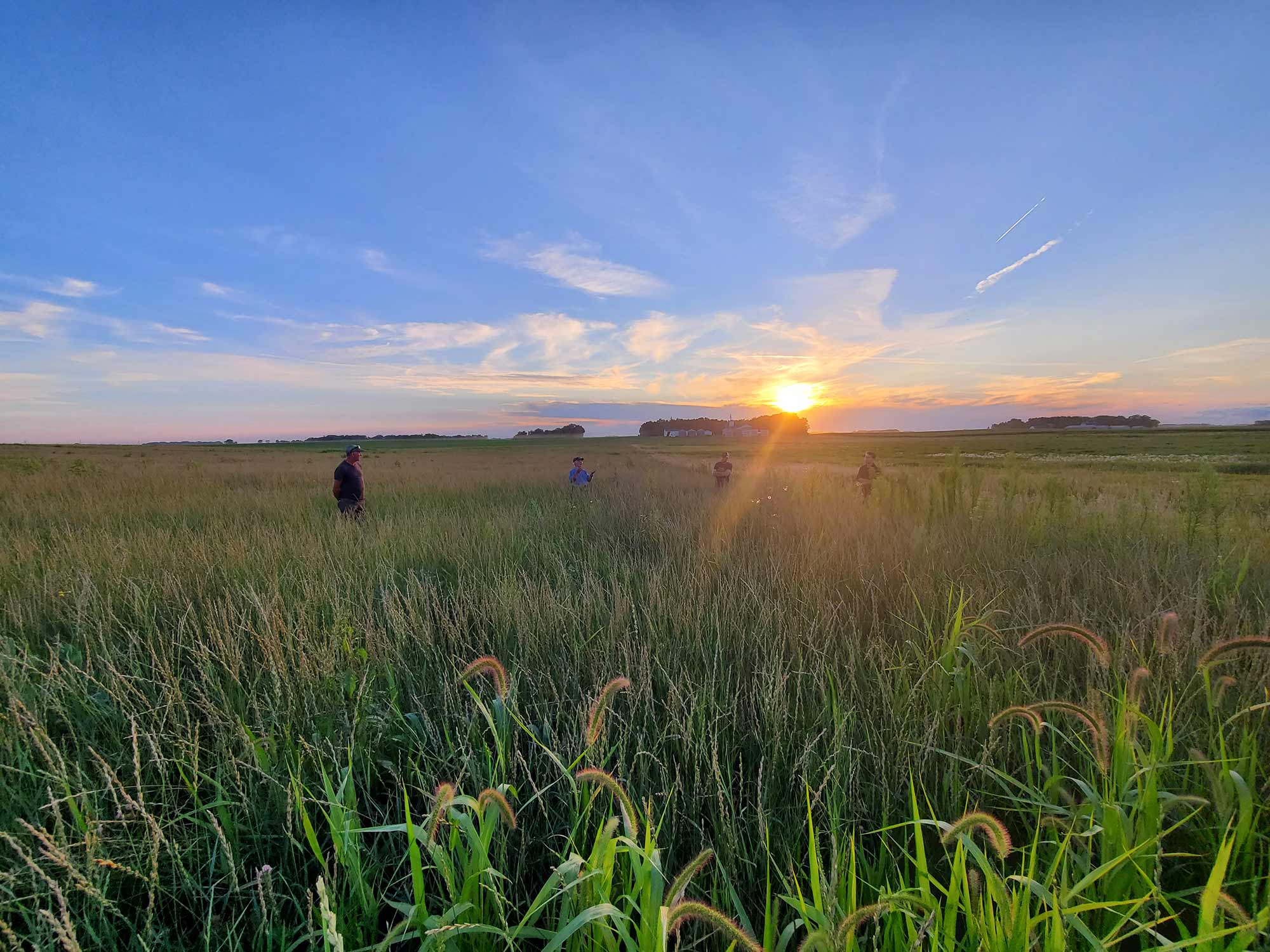Stories & Videos
One Missouri farmer steps up to connect neighbors, agencies, and policy makers


Brent Hoerr experienced a Mississippi River flood for the first time in 1973.
His Missouri family lost their farm home that year, rebuilt, and lost it again in 1993. His dad was a levee Board member, so from a young age Brent saw both the personal and political sides of farming in the floodplain. “I learned there are some things you can control, and some things you can’t,” he says.
“The river bottom is where I work to support my family,” says Brent. “It’s important for those of us who depend on it for our livelihood to be good stewards. It matters what we do and how we do it.”
Leadership near home
Where the Hoerr family lives, levees were installed 100 years ago to protect public health and transportation systems, and to promote economic growth. The levee system has been maintained locally with some public assistance since.
Brent has been part of that work as commissioner and president of the Marion County Drainage District for more than 36 years. The Drainage District is a group of elected officials who manage a pump station and natural drainage outlets to the Mississippi, help maintain levees, construct and maintain drainage from farmland, and attend to local flood protection.
Soil has accumulated outside Marion County’s levee for 100 years, a lost resource largely due to agriculture, he says, causing high water even at low flows. “Our responsibility is to identify how to minimize this impact through collaboration. Floods challenge, stress, and overload all our systems—agriculture, transportation, and the environment. We want them all to be resilient and thrive.”
“Flat-out, it involves economics and priorities,” he adds.

Conversations across sectors
Hoerr says science and real experience must combine to shift farm and river management practices. To bring these worlds together, “We need to create places to talk, and we need to ask, ‘What are you doing? Where are you going?’ We need to work to find out if there are some things we share.”
After saying this, Mr. Hoerr offers that he does not have all the answers. He has questions. He’s curious. He listens to the words and intentions of people he meets, and this attitude appears to open doors.
“We can be experts in things we’re interested in,” he says, “those things that affect our lives. I’ve taken an interest in a five-mile stretch along the Mississippi River. I’m trying to identify and work with what’s going on.”

Innovating at home, connecting people beyond
This work begins with attention to his own land, focused today on making plans with a neighbor for 40 lowland acres and about 20 acres of widened ditches. “We’re trying to get ducks to stay around by adding seasonal habitat after crops come out, creating nesting areas, and diversifying low areas. Holding water through winter and spring reduces nutrient runoff,” he explains, “and we can pay for the project with hunting fees.”
Mr. Hoerr participates in regional conversations for flood control. He says of one event, “We didn’t get very far because there are a lot of groups on the river, and listening is an important tool that is often overlooked. In the end we may not get a whole loaf, but we might get a half, and a half may be better than where we are now.”
Long ago a friend told Brent Hoerr that people who show up can have an influence. “Get involved!” he says. “Actions count.” But in the end, persistent listening may be the most important asset Mr. Hoerr brings to work in his region.
— Story by Nancy North
Fishers & Farmers Partnership for the Upper Mississippi River Basin supports collaborative, local, farmer-driven work for healthy streams, farms and fish habitat. For more than a decade we have provided funds to projects in Iowa, Illinois, Minnesota, Missouri and Wisconsin, as well as connection and leadership development for local teams, including Mr. Hoerr. Learn about Fishers & Farmers Partnership funding and apply here.

